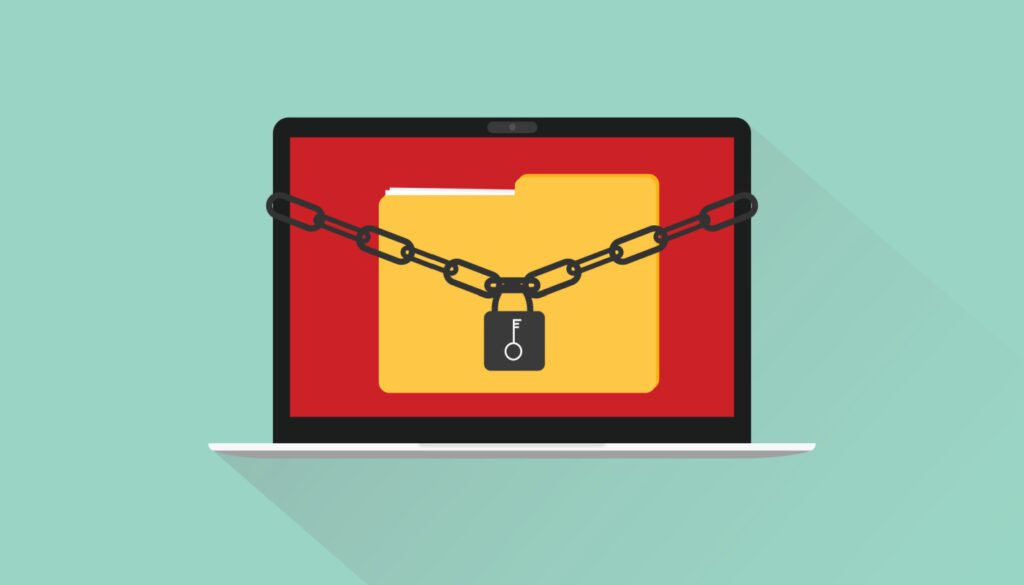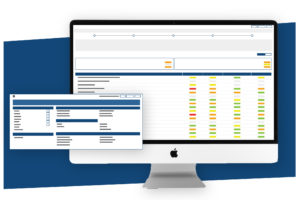Ransomware Poses Big Problems for Small Credit Unions

Cybercriminals could be casing your credit union at this very moment, searching for vulnerabilities. What would they find? A weakness in one of your core technologies, vendors, or vendor’s vendors? Rest assured, if there’s an entry point, they’ll exploit it.
Do you think your credit union is too small to have to worry about ransomware?
The ransomware attack that caused extended outages at credit unions across the U.S. in late November tells us that’s not the case. According to the NCUA, the 60 affected institutions all had $100 million or less in assets.
Protect Your Community from Data Breach Risk!
As we enter a new year with plenty of question marks, one thing is certain: this isn’t the time to procrastinate when it comes to cyber risk. There are millions of ransomware attacks every day. By some estimates, a new attack occurs every 19 seconds.
Have you experienced an attack recently? If you don’t have your cyber risk management program in order, it’s only a matter of time before disaster strikes. Trust us, it’ll be bad if you’re not prepared. Just ask 23andme, T.J. Maxx, or T-Mobile. If a cyber attack can do so much damage to some of the nation’s biggest companies, imagine the impact one could have on your credit union and community.
Ransomware Considerations for Your Credit Union
Here are five reasons why small credit unions should be on alert when it comes to ransomware.
1.) Limited Resources & Cyber Expertise
Bigger institutions deploy a great deal of money and manpower to tackle growing risks. Smaller credit unions operate on much tighter budgets. As a result, they often lack specialized knowledge about cybersecurity. This dynamic creates a weak link that attackers are eager to exploit.
2.) High-Value Data & Vulnerable Systems
Small credit unions handle a significant amount of valuable member data. This wealth of personal information coupled with limited resources to defend it, puts smaller institutions right in the crosshairs of cybercriminals looking for an easy score.
3.) Regulatory Compliance & Legal Risk
Small credit unions are subject to strict regulatory requirements. As a result, the fallout from a ransomware attack can extend beyond financial and reputational damage. It can also mean substantial legal and regulatory penalties for failing to protect member information and properly notify members after a breach.
4.) Reputation & Member Trust
Maintaining the trust and confidence of members is mission-critical for financial institutions. It’s even more important for leaner organizations, as they have a smaller pond to fish from. As a result, a ransomware attack can inflict major reputational damage that some smaller institutions struggle to recover from.
Where Your Credit Union Could Fall Short

Here are some mistakes that we observe small credit unions making with their cyber risk management efforts:
1.) Thinking They Aren’t a Target:
It all starts here. You can’t build a strong defense if you don’t expect a threat. Many smaller institutions don’t think they’re an attractive target for cybercriminals. As mentioned previously, this assumption couldn’t be further from the truth. Ransomware gangs go where the money is, and your local credit union has plenty of dough (and member data.)
2.) Staffing Challenges:
Cybersecurity experts are in high demand, and a job at a their local bank or a credit union isn’t usually as enticing as one in tech or healthcare. Without the proper cyber expertise, organizational cyber awareness and resilience suffer.
3.) Outdated Software and Systems:
This one is pretty self-explanatory. Keep your systems and staff devices up to date. Better patch management and software update procedures could have prevented some of the world’s biggest data breaches (as well as the one referenced above.) Cybercriminals look out for outdated systems with unpatched security flaws. Please don’t make it so easy for them.
4.) Poor Password Practices:
Weak or reused passwords can be an entry point for cyber attackers. As a result, small credit unions should be sure to enforce strong password policies, implement multi-factor authentication (MFA), and regularly update login credentials. Here are some tips to get you moving in the right direction.
5.) Overlooking Vendor Security:
Failing to properly vet and monitor the cybersecurity practices of your key vendors is a surefire way to run into cybersecurity problems. As a result, credit unions should assess the security measures of vendors handling sensitive data. Here are some tips to help you get started.
It’s Time to Take Action!

Time is of the essence. Proactive measures taken today will pay dividends tomorrow. So, what are you waiting for?
WolfPAC gives you the power to make a difference! We offer the best risk management tool for lean credit unions that need to beef up security without overspending and tying up internal resources.
Contact us today to learn more and speak with a cyber risk management expert.